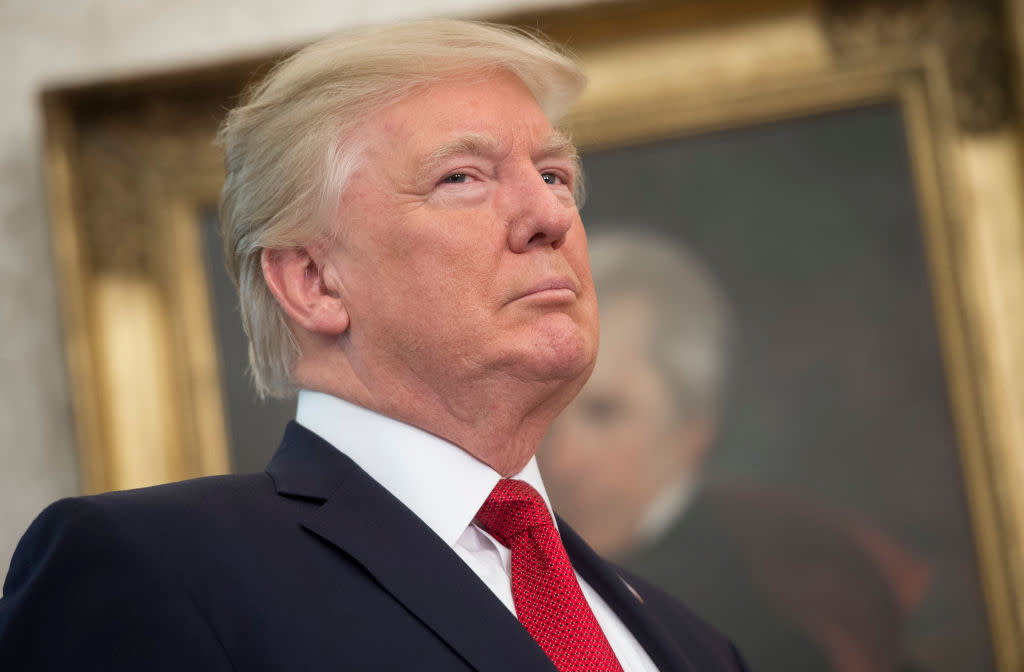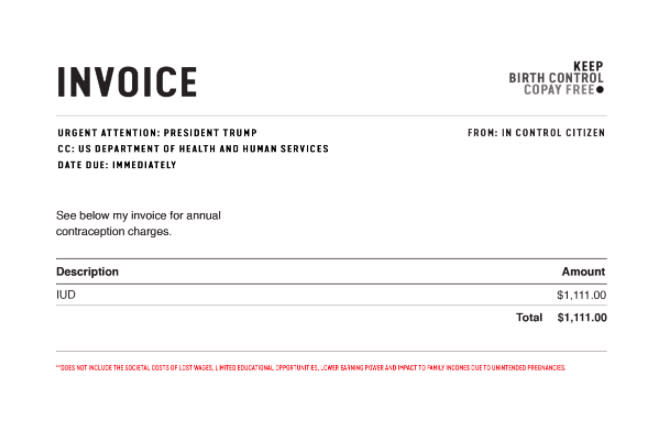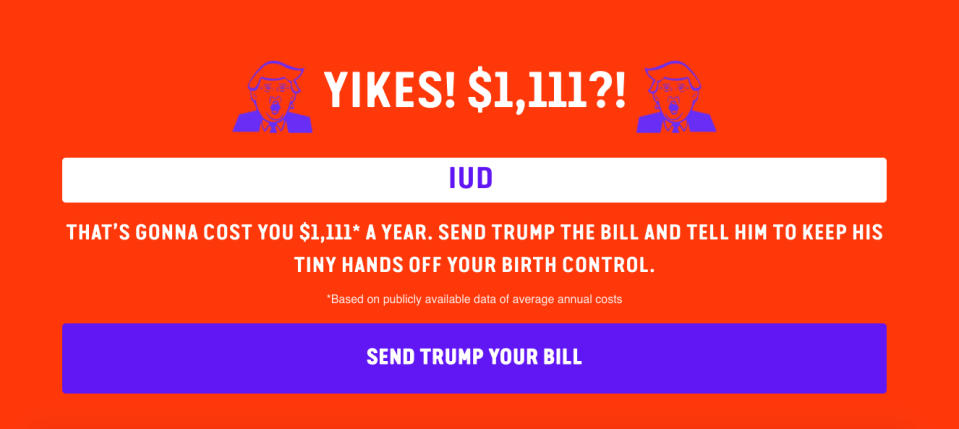Website Bills Donald Trump for Your Birth Control

Earlier this month, the Trump administration followed through on a long-held promise to make it harder for women to access affordable birth control through their employers. On Oct. 6, the Department of Health and Human Services issued two rules that allow employers to receive an exemption from providing free or low-cost birth control coverage on the grounds of "sincerely held religious beliefs or moral convictions." Or in other words: If an employer doesn't believe women should be able to have access to medication that allows them to have sex without becoming pregnant, or helps manage an array of other non-sex related health problems, they don't have to.
According to the New York Times, hundreds of thousands of women stand to lose coverage that allows them to access affordable birth control. To send a message in protest to the White House and Department of Health and Human Services, the Keep Birth Control Copay Free campaign launched a tool this morning that allows women to send an "invoice" of would-be birth control copayments to President Trump.

The invoice generator allows women to choose their current form of birth control on a dropdown menu of the seven most commonly used types, shows what the copay per year would be, and then allows women to send an invoice of that cost to the White House and Department of Health and Human Services. Women also have the option to add a comment to the federal register expressing objection to the new rules, and to tweet or share their invoice on Facebook.
The generator is also a good tool for women who currently have birth control coverage through their insurance and are curious about how much their chosen method would cost if they lost it. The cost data is mostly sourced from Planned Parenthood, and the IUD cost is sourced from extensive research by Amino, a healthcare and research company. As a disclaimer, the costs aren't going to be exactly accurate down to the cent. But the idea is that this is what birth control could cost if your employer didn't cover low-cost birth control.

Obviously sending a slew of birth control invoices to the White House isn't going to suddenly encourage Trump to pay for every American woman's contraception (though wouldn't that be nice). The point is to protest two rules that put the 55 million women who receive birth control without copayments at risk of losing access to to medication that vastly improves their lives.
Follow Hannah on Twitter.
You Might Also Like